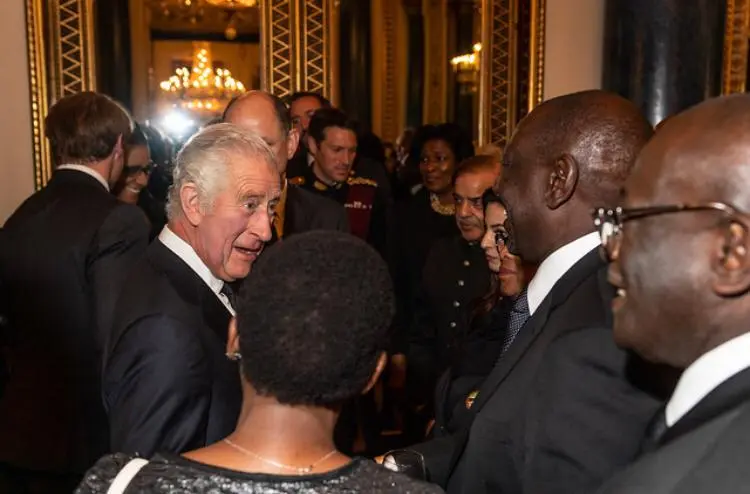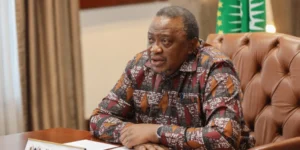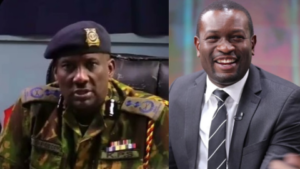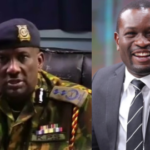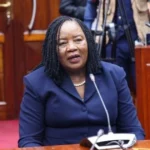King Charles III of the United Kingdom is embarking on his first official visit as monarch to a Commonwealth nation, Kenya in a four day trip. His visit carries with it great historical significance and the promise of addressing some of the more painful aspects of the UK’s colonial past.
Buckingham Palace has announced that the king intends to delve into the complex relationship between Britain and Kenya, particularly focusing on the period of British colonial rule, which ended in 1963.
Read also: County Officials Spend Billions of Taxpayer’s Money on Travel
In a statement from Buckingham Palace, it was revealed that King Charles III is committed to understanding and acknowledging the wrongs suffered by the people of Kenya during this tumultuous period.
This includes the “Emergency” of 1952-1960 when colonial authorities imposed a state of emergency in response to the Mau Mau guerrilla campaign against European settlers. Approximately 10,000 people, mainly from Kenya’s Kikuyu community, lost their lives during this suppression, creating a complex backdrop for the royal visit.

As Kenya prepares to celebrate 60 years of independence from British rule in December, the timing of King Charles’s visit holds special significance for both nations. Notably, Kenya is the place where Charles’s mother, the late Queen Elizabeth II, learned of her father’s death, King George VI, marking the commencement of her historic 70-year reign.
The royal couple, King Charles and Queen Camilla, will be welcomed by Kenyan President William Ruto in Nairobi on Tuesday, commencing a journey of reconciliation and reflection on history. During their two-day stay in the capital, the Monarch will engage with entrepreneurs, young Kenyans, and participate in a state banquet.
The royal visit also includes a trip to a new museum dedicated to Kenya’s history and a solemn wreath-laying ceremony at the Tomb of the Unknown Warrior in Uhuru Gardens, the site where Kenya declared independence in December 1963.
The visit takes place 40 years after Queen Elizabeth II’s state visit to Kenya in 1983, underlining the enduring connection between the British monarchy and Kenya.
The Commonwealth, a collective of 56 countries, most of which were former British colonies, plays a pivotal role in the king’s visit. While over a dozen Commonwealth nations still recognize the UK Monarch as their head of state, the desire to transition to republic status is growing among some, including Jamaica and Belize.
Barbados notably removed the UK’s Monarch as its head of state in 2021, choosing to become a republic. Charles’s visit is perceived as a significant move to strengthen the ties between the UK and the Commonwealth.
Poppy Cullen, an African history lecturer at the University of Cambridge, noted, “The late Queen was very much connected to the Commonwealth. I imagine that the British government will be keen for the King to do something similar to raise its profile and maintain unity within the Commonwealth. This visit is an opportunity for Britain to showcase the advantages of being an independent republic within the Commonwealth, as Kenya is, potentially serving as a model for other nations.”
As the discussions during the visit unfold, the specter of colonial history is likely to loom large. Notably, in 2013, the UK agreed to compensate over 5,000 Kenyans who had suffered abuse during the Mau Mau revolt, a deal valued at nearly £20 million. Charles’s words during this visit will be closely monitored, particularly in light of Prince William’s expression of “profound sorrow” for the slave trade during his visit to Jamaica last year, which stopped short of a formal apology.
Subscribe to Switch TV
Cullen emphasized that Charles’s words may set a precedent, saying, “If he apologizes or expresses regret, then other countries will expect something themselves.”
Another issue of ongoing concern is the presence of British troops in Kenya. In August, the Kenyan parliament launched an inquiry into the activities of the British army, which maintains a base on the outskirts of Nanyuki, approximately 200 kilometers north of Nairobi.


